#anybody home????
Explore tagged Tumblr posts
Text
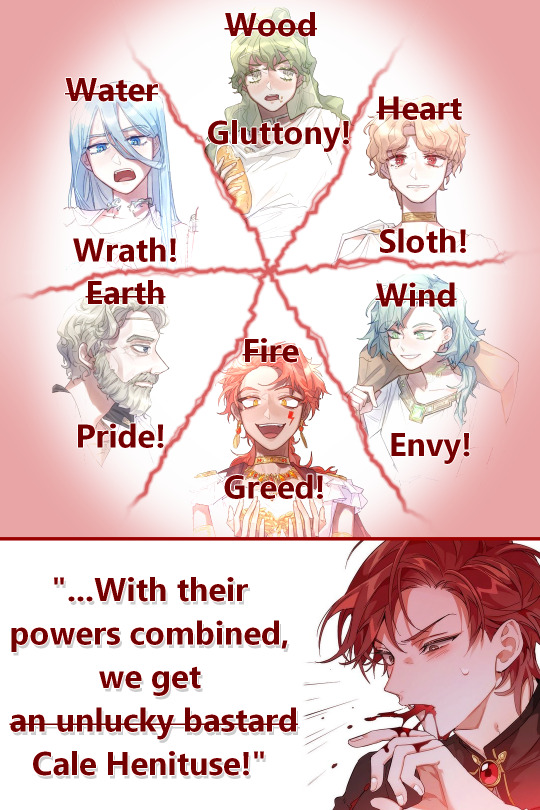
I haven't seen a Captain Planet meme for TCF yet, but to be honest, the Deadly Sins fit too well into this as well, so... combo?? ¯\_(ツ)_/¯
(Also; I know that Cale has 7 Ancient Powers, and I know I did not include the Dominating Aura or "lust". ...But even connecting DA with "bloodlust" is a big stretch, it doesn't with with the other APs regardless, and finally:
I dare you to find any Choi Jung Gun/Nelan Barrow fanart in this fandom.
I freaking DARE YOU.)
#tcf#trash of the count's family#lcf#lout of the count’s family#ancient powers#meme#tcf meme#humor#tcf humor#captain planet#captain planet meme#where the FRICK do i find any CJG fanart???#first dragon slayer? friend of the dragon lord?? hello???#anybody home????#i swear i only found like ONE pic and his face had a “CENSORED” bar over it as a freaking JOKE#somebody find meeee sombodyyyyy to......meme~!
717 notes
·
View notes
Text
I'm not going to lie, there's some sweet, sweet allure in a premise based on "Johnny 13 ends up in Gotham just for shits and giggles only to accidentally settle down there."
This dude just happens to be Haunted as Fuck™️. His vibes are rank and he's rude as shit. Negative rizz. You literally can't pay him to do your goonery for you, but if you phrase it as a bad enough idea he'll do it for free...? But then like the whole building will explode for no reason or something else as equally as catastrophic and improbable?? What the fuck man
Just. This dead dude and his supernatural manifestation of bad luck is completely indecipherable from Gotham's natural toxicity to the point where he just...makes friends. Is a shitty upstairs neighbor. Shops at the corner store. Despite the odds, he's just Some Guy™️. He gets signed up for the Goonion. He reasonably could be any age between 19 and sixty. Two-Face kicked him out of his gang twice.
#I bet he gets into fistfights with Jason at the motorcycle club#I bet the local sandwich shop hates him#I bet the local villains hate just like this one guy for personal reasons that don't match up with anybody else's reasons#dp x dc#dpxdc#dcxdp#free to a good home#dcu crossover
4K notes
·
View notes
Text
Whenever I see people call ICIMI boring or the worst album this image flashes in my mind

#will wood#wee woo#“Oh it's so drawn out and boring” INCORRECT!!! FALLING UP ATTACK💥💥💥#God I love ICIMI so much man#Becoming the Lastnames is such a beautiful song and I feel it in my very soul#Falling Up (as previously mentioned) is SO GOOD#SAME WITH THAT'S ENOUGH LET'S GET YOU HOME#AUGHHHH THEY'RE SO GOOD#Anybody who slanders the middle section I don't trust those songs are great#Willard! and White Noise are great too#Like guys this album is so great#Like maybe listen to it again and you'll appreciate some of the songs more#wi wo#There are no worst Will Wood albums man not even CH&T#They're all great
1K notes
·
View notes
Text


Hi dmcblr, how's it going?
#in case anybody noticed yes i sorta vanished from tumblr for a while...#i became the person i judged: a twitter user#but i am faithful to my lil home dw <3#devil may cry#dmc shitpost#dmc5#dmc dante#dmc5 dante#devil may cry dante#dante sparda
664 notes
·
View notes
Text
“This girl…”


“Who is she?…”
Taglist: @skriblee-ksk @taruruchi @scint1llat3 @thehollowwriter
#more glomas Jewel content doing what she loves dancing#twst fanart#twisted wonderland#twst oc#glorious masquerade#Jewel Imerladi#oc jewel#I headcanon that this event is one of the few times Jewel feels like she’s at home and within her element#also let’s ignore the fact that I did not add her mask because I got to lazy to do the detail work of her mask#I was gonna add more but I think I’ll leave the doodle for another day#artists on tumblr#twst glorious masquerade#bonus points to anybody that gets the song reference#twst art#twst#disney twst
178 notes
·
View notes
Text
Holy shit, y'all
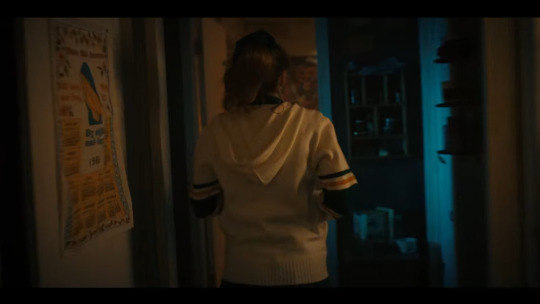


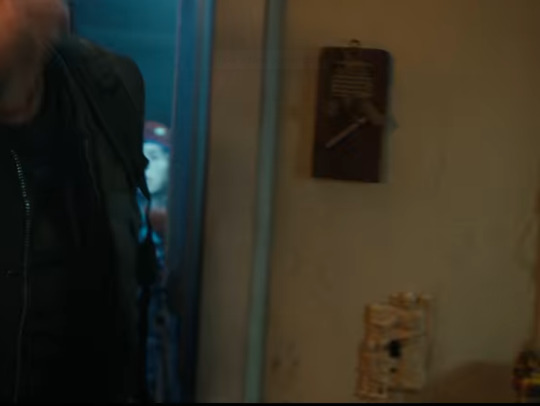
The Munsons are Catholic.
#Stranger Things#Eddie Munson#Wayne Munson#this is more religious iconography than we've seen in anybody else's home!#in the entire show!#holy shit Wayne Munson is ACTIVELY RELIGIOUS#wow I need more of THIS in fic right this goddamn second#that is an actual cloth calendar that is not a free thing you pick up at church#that is not a thing you hang up in your home by accident#(also I'm not saying guardian angels and praying hands CAN'T be some denomination of protestant)#(but that is some Catholic-ass iconography right there)
2K notes
·
View notes
Text
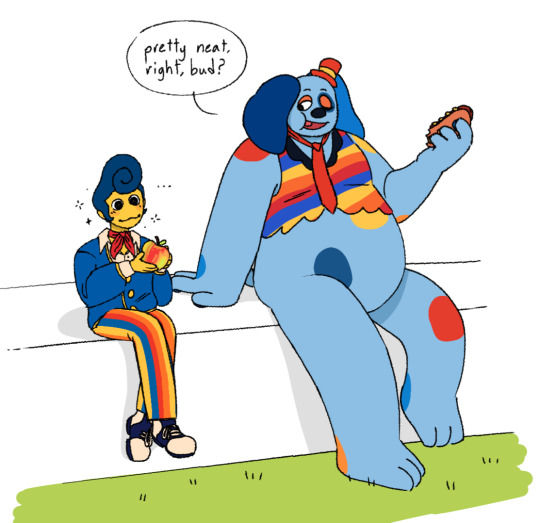
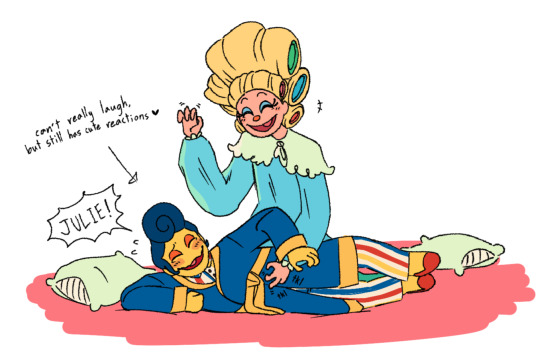


oh mee lord, today was a doodly day
#i love drawing wally fawning over non-red apples so much#also i haven't seen anybody draw the wintertime wally yet :(#welcome home#wally darling#barnaby b beagle#frank frankly#julie joyful#welcome home wally#welcome home barnaby#welcome home frank#welcome home julie#and for the homies (even though it's just one) ->#tickle art#welcome home tickles#lee!wally#ler!julie#my art
2K notes
·
View notes
Note
gojo would kill your work husband. but if he were the work husband, that's a different story
REAL!! he’s such a hypocrite because if someone mentioned you had a work husband, his entire world would stop and he wold devise the absolute worst plans to make sure that your co-worker, everyone at your job, and everyone in the next building over knew that he was happily committed to you
but if he is the work husband, he’s very........ dutiful in his role. there’s a loose office/lawyer au in my head where satoru is your secretary, and for all intents and purposes, your personal assistant, and he’s good at his job, but mostly because he considers his job to be pleasing you. he has coffee for you when you arrive, he moves your schedule around without you asking, he has answers to questions before you can even ask them, he has fresh flowers on your desk weekly, pokes into your meetings to pretend to hand you a file that’s really just maybe a single document in a manilla folder with candy on top of it—he’s made himself your business, your partner; he’s made himself irreplaceable, and he loves to remind everybody of that fact.
he’s also extremely loyal. sure, he could day a week’s worth of work done in about a day, but that doesn’t mean he’ll just use his talents for anybody. he’s your secretary, so he’s at your beck and call, and everyone knows it. they know he’s the best, but also that he’s off limits—not because you won’t share him, but because satoru won’t let himself be shared.
he also extends his duties beyond work, of course. when he hands you a print out of your schedule for the day and you’re confused by the three-hour block of time you have in the middle of the day, satoru just helps you shrug your coat of your shoulders and smiles, “that’s for the lunch date you have with me, of course!” hanging up your coat in your closet for you, “i’m paying, see you soon, sweets.” and because you’re great at your job, and satoru helps you be great, nobody really questions when the two of you have time for a 13-course tasting menu at 1pm on a tuesday afternoon. and if they did, all satoru would say that you two had a lovely date
#anonymous#he's like donna from suits but worse because he's like if harvey were donna LOL#i have soooooo much to say about him#he doesn't really Have to work he's a nepotism baby supreme#but he met you maybe in undergrad? and he's been obsessed w you since#he knows youre a workaholic so he's dutifully sat by your side all these years through college through grad/professional school#and when you told him you got to hire your own assistant he was the very first applicant#because getting paid to spend his days with you and take care of you? he was already doing that for free might as well make it official#everyone in the office knows satoru loves you except you honestly#he probably has his own masters/JD but elects to be your assistant anyway bc that's so much more fun#what he Really wants to be a househusband but first he's gotta ask you out and propose and all that good stuff (cue him rolling his eyes#and going on about formalities and boring systems and blah blah blah)#also in the office au in my head: nanami (also senior partner) higuruma ofc <3 beloved (managing partner) and TOJI!#WALK WITH ME!#its honestly probably satoru's influence that gets toji into law... as someone who so feverently broke it in the past#idk maybe there's a megumi situation that makes gojo be like yk if ur this good at skirting/breaking the law youd probably be half decent#at enforcing it... or at least helping other people get around it too#and so lawyer toji is born#does he screw around w the rich people who r stupid w their money? absolutely#but you nanami and higuruma just let it be bc he brings in those settlements better than anybody else....#hmmm... i kinda wanna make megumi somebody's associate but also..... yuuta.....#i think i just like sticking yuuta in a tie if im being real#but anyway... satoru is your Work Husband and everyone knows he wants to be your real husband#but they just let it slide bc rumour has it even tho hes just a secretary hes got equity in the firm?? and besides that his heart eyes give#away his hopeless devotion from a mile away#the day you actually start seeing somebody outside of work... oh theyre in for Trouble#satoru x reader#him dragging you out of ur office late at night and u protesting so he just. puts u over his shoulder#and ur telling him to let u down but he's insisting u go home and then nanami pops out of his office#and ur like wait nanami this isnt what it looks like but he's so dead in the eyes when he just sighs
259 notes
·
View notes
Text
the problem with mike wheeler is that I can never truly tell if he's got several complex thoughts swarming his brain constantly or if it's just darkness and wii music up there
#“helllooooo?” I say knocking on his skull#“anybody home”?“ I ask knocking on it again#byler#will byers#mike wheeler#stranger things#stranger things 5#byler endgame#mike x will#st5#miwi#dumbass#no thoughts head empty#or maybe not#maybe many thought head full
346 notes
·
View notes
Text
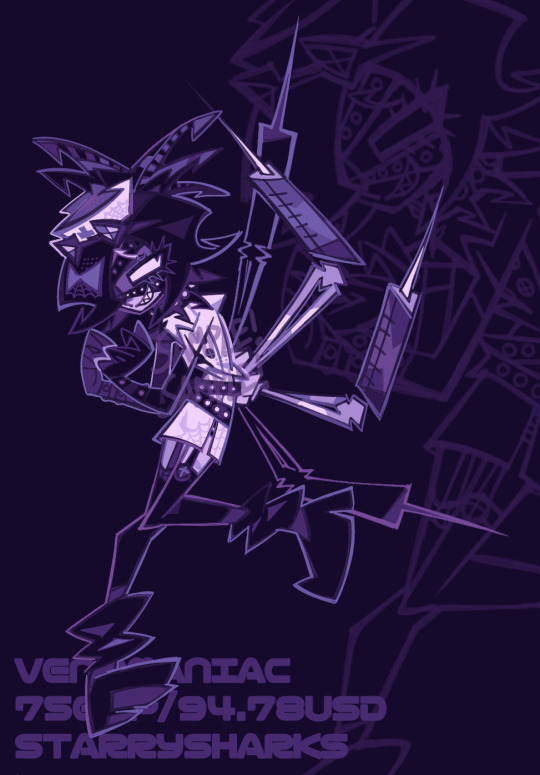
VENOMANIAC 💉🕷🔩 £75, DM TO CLAIM
#zeno's art#adopt#adoptable#character adopt#character adoptable#original characters#visual kei#cybergoth#mad scientist#bwaaaah i wanna keep him but i need cash..........#if anybody ends up buying him pls give him a good home 🫶🏿#same goes for frankenscene btw.... who hasn't been bought yet.... lol someone should buy her.... ha ha ha... bites lip
178 notes
·
View notes
Text
Adrien's dream is to become Marinette's malewife

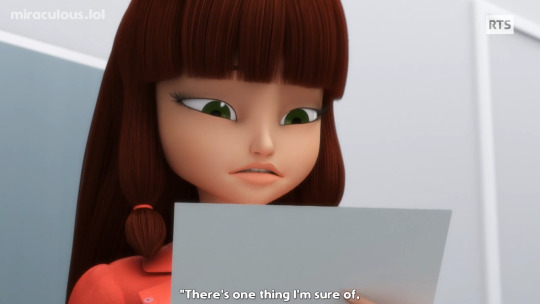
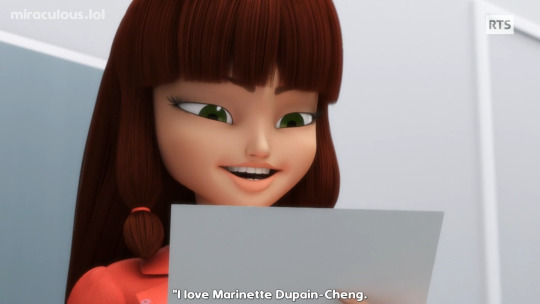
#stay at home dadrien anybody???#ml confrontation#ml#mlb#miraculous ladybug#ml s5 spoilers#ml spoilers#adrienette#adrien agreste#sidrabbles
798 notes
·
View notes
Text
Worm and other media that won't just let you shoot the Joker, part 1:
Worm comments on the structure of stories, especially superhero stories, in some interesting ways. There's a lot of stuff that happen in superhero comics for no real reason than that it needs to happen for the story to be interesting; a huge amount of Worm's worldbuilding is devoted to taking these things and making the fact that they have to happen an explicit in-setting constraint. For instance, superhero stories tend to have more powerful heroes face off against much more powerful villains than their less-powerful allies, to the point where it seems like super-powerful threats are coming to earth every few weeks just because it wouldn't be interesting to read that comic otherwise. It gets weirder when you compare what villains end up visiting the cities of uber-powerful heroes vs the cities of less powerful heroes: Gotham mostly just has to deal with serial killers while Metropolis is a magnet for evil gods. Worm plays with this by having the Endbringers exist only because the big hero needed something to fight in-text: it changes "powerful heroes need powerful villains or else it wouldn't be interesting" from a Doylist justification to a Watsonian one. Then there's the fact that so much of the horrible conflict in Earth Bet is explicitly caused by Gods making sure the powers they grant people lead to increased conflict, the fact that one of the most powerful characters does what she does because the plot path to victory says she needs to, etc.
But the big one is Jack Slash, and how he's only able to get away with his bullshit because he has plot armor as a secondary power. As WB says here, "Jack's a reconstruction of the Joker type character in the sense that you can't have such a character take such a high profile position in the setting, without having there be a cheat." The Joker and similar characters are only able to keep being relevant threats in their stories because the narrative bends to let them win and stops them from being killed. Jack Slash is only able to keep being a relevant threat because his power makes the universe bend to let him win in the same way. Not only does this make for an interesting obstacle (its almost like they're fighting an authorial mandate!), but it skewers the use of similar character's plot armor and how unrealistic and unsatisfying it makes their stories.
But wait, what does it mean for a story to be "unrealistic" in the context of superpowers? Is being unrealistic in those contexts actually a problem? For that matter, what does it mean for a narrative to bend to let someone win? Its not like there's an objective way fighting the Joker would go, which the author is deviating from by letting him survive.
[Stuff under readbelow contains spoilers fo, the movie Funny Games and the book Anybody Home?]
Maybe we could say that if characters like the Joker were real, and put in the situations they are in their stories, they would end up being killed really quickly. But is that a reasonable way to judge stories? A narrative where such a character is killed unceremoniously to satisfy a need for realism isn't any less an expression of the author's deliberate choices than a story where the character keeps showing back up to satisfy a desire for fan-favorite characters. And while Jack Slash's arcs help show why deviating from "realistic consequences" in the service of keeping a character alive can make a story exhausting and screw with an audiences' appreciation of stakes, it doesn't make a strong case against the concept of villains having plot armor in general. A story isn't necessarily worse just for being constructed to keep the villains alive—all stories are constructed, and sometimes being constructed that way makes for the best story.
That becomes more clear when you take the premise of Jack Slash as "killer who wins because the mechanics of the universe says so" and make clear just how much "the mechanics of the universe" really just means "the story". Which is how you get Peter and Paul from Funny Games.
I'd highly recommend watching Funny Games (though for the love of god check content warnings), as well as Patricia Taxxon's review of it that I'm cribbing a lot from here. But to summarize, Funny Games is a movie written and directed by Michael Haneke about a family's lakeside vacation being interrupted by the appearance of two murderous young men, who capture them in their own house and slowly torture and kill them off. At least, that's what it seems to be about initially. It marketed itself as a somewhat standard entry in the genres of torture porn and home invasion thrillers, and played itself straight as one for the majority of its runtime. But then one of the two villains of the pair, "Paul," starts talking to the audience.
It starts small: after crippling the family's father and revealing that he killed their dog, Paul has the wife look for its corpse outside. While giving her hints, he slowly turns back towards the camera and smirks, before turning back. In isolation, maybe it could be interpreted as Paul smirking at Peter, seeming to look out at the audience only because of clumsy blocking. But then it happens again. Paul tells the family, who are completely at their mercy at this point, that they're gonna bet that they'll all be dead within twelve hours. When the family refuses to take the bet, asking how they could hope to win it when he can clearly off them all whenever they wish, Paul turns towards the audience and asks "what do you think? Do you think they stand a chance? Well you're on their side aren't you. Who you betting on, eh?" The audience is being acknowledged; their role as someone invested in the story is being examined by the ones introducing the stakes.
youtube
But the biggest moment comes near the end, when the mother grabs the shotgun she's being threatened with and blasts Peter. Paul startles, grins, and then hurredly grabs a tv remote and presses rewind. The movie itself suddenly rewinds to right before the mother grabs the gun, and plays again with Paul grabbing the shotgun right before the mother reaches for it.
Its a truly incredible moment, in that its the perfect way to forcibly take away the audience's suspension of disbelief. It forces the audience to acknowledge that they're viewing a story, not something happening to a real family. After their moment of catharsis against the villains, Paul makes the confront the fact that the movie will end however the creators want it to, and if they want the villains to win they'll will regardless of how little sense it makes. Fuck you, we can go from being set in the normal world with normal rules to the villains traveling back in time with a tv remote, because a story does whatever its creators want. Haneke just decided to make that obvious in the most jarring way imaginable.
But maybe the best way to illustrate Funny Games effectiveness at this type of artful unveiling is comparing it to its less-effective imitators. I've recently finished Anybody Home?, a recently-published book by Michael J. Seidlinger. It has the conceit of being narrated by an unnamed mass-murderer, guiding a new killer in their first home invasion. I started reading it before I watched Funny Games, and even afterwards took a while to realize the unnamed narrator wasn’t just a pastiche of a Paul-like character but was actually supposed to be read as Paul himself. Seidlinger was having his book be a sort of unofficial sequel to Funny Games, narrated by its star. Once I realized, a lot of the books details suddenly clicked. The big one was the constant references to “the camera" and the idea of murder being a performance for an audience, one that needed to be fresh and original to make “the cults” enjoy it. Take these passages from page 77:
If it happened, it would perturb. It would create suspicion. It wouldn’t end up ruining the performance, and yet, it could have derailed our casing. The camera can have all it wants; either way, it’ll make it look better than it really was. It’ll strip away the cues and other planned orchestrations and it’ll show the action—the actuality of each scene, each suggestion…
This is a spectacle, above all. The craft pertains to keeping and maintaining a captive audience; behind the camera, you’ll never know how it happened—the trickery that made the impossible possible, the insanity so close to home. It is spectacle.
Through online activity, the son made it clear that something is happening at home, yet we cannot be certain if he has noticed the camera.
These all point to the idea that the murders are being viewed by an audience rather than just by intruders, that this is a performance for said audience's benefit more than anything else. But notably, it also reinforces the idea of these characters having an existence outside of the camera: the camera shows the action and "strips away" the cues behind it, the victims have a life outside the camera such that they could plausibly sense that the camera is now here. The victims are sometimes described as playing into their role, but always metaphorically; always as if normal people start acting like characters when put in certain circumstances. Whereas Funny Games posits that characters will behave however the author wants them to, denying the claim that stories are realistic simulations of hypothetical scenarios.
The whole thing is predicated on the idea that there needs to be a guide, that the villain of a home invader movie is really in danger of something going wrong. Paul/The narrator keeps giving directions on what needs to be double checked, what needs to X, and its completely against the spirit of the role Paul served in Funny Games. If something goes wrong for the villain they should just be able to rewind and do it over, because the story was written for them to succeed. Anybody Home? throws out Funny Games theme of the story being on rails, of the winner being whoever the author wants it to be and the events following whatever the author wanted rather than what would "really" happen. It throws out the whole idea that it’s all just a story, by supporting the idea that the characters have lives not captured by the camera—or more relevantly, not captured on-page.
Because Seidlinger using the language of film in a book leads to different things going on with the fourth wall. The way Funny Games and Anybody Home? make the camera explicit are just different, and the former does it much more interestingly than the latter. Seildinger’s characters aren’t looking back at the reader, the fourth wall is never actually breached. Funny Games has Paul look into the camera to address the audience, making clear how it’s a story being set up for the audience's benefit. Anybody Home? invokes the idea of a camera tracking everything home invaders do in general, having it be a third-party force that’s itself an unseen character contained within the story, observing the intruder's crime rather than the reader. Why is it still a camera, if we're in a book rather than a movie? A character in a book talking about a camera watching them does not convey any of the same meaning as a character in a movie suddenly looking into a camera and smirking at the audience!
By the end, you realize that this is caused in part by the book's bizarro take on how horror movies exist in this world. It reveals that in its setting, all horror movies are adaptations of real home invasions, which get recorded by unseen mysterious forces. Killers enter a home and enact violence, are filmed by some supernatural camera, the footage gets leaked to the public, and then the killers sell the rights to the work to studios. The events of SAW really happened, but the movie was just an adaptation. Funny Games really happened, but the Paul in the movies was just an actor playing the Paul narrating this book. The killer's victims eventually realize that they're "victims," but not in the sense that they realize their characters in a story, only in a sense that they realize they got sucked into their world's magical realism bullshit.
Ultimately, while the book does the same trick of being all about how horror stories are “for” us, it gets rid of all the tricks that made it work for Funny Games. It even strips it's in-universe version of what made it special; Funny Games is just another adaptation of a real home invasion. All the meta stuff that makes it interesting in its genre are just gestured at as aesthetics.
So what makes Jack Slash in Worm succeed where the killers in Anybody Home? fail? Both are constructed to be entertaining for a 3rd party who stand-in for but aren't actually the audience; the entities in Worm, the cults in Anybody Home?. But Jack Slash doesn't mix his metaphors. Worm may turn various real-life factors affecting a work into in-story mechanisms of the world in the same way Anybody Home? does. But it doesn't also base itself off a text that takes in-story mechanisms and breaks them to force the audience to see the various real-life factors affecting the work. In effect, WB pulls off a trick Seidlinger tries and fails because WB wasn't taking another metatexual story and stripping it of what made it interesting.
Though that introduces the question: can such meta-moves be mixed? Can you have a text where story conceits become explicit plot mechanics the characters are aware of, while also having characters really look at the camera and tell the audience that its all just a story? Can you actually sell it and make it something interesting?
There is one story that tries this. I don't know if it pulls it off, but it certainly makes a lot of interesting moves that create a fascinating whole. It even comments on the Joker in the same way Worm does, having a character who seemingly cant die because the roll they play in the story is too impor—
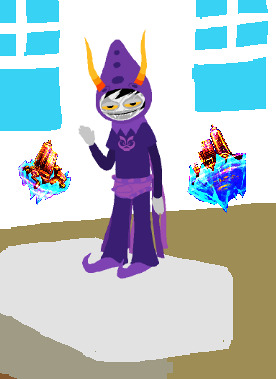
Ah fuck.
Continued in part 2.
#wormblr#wildbow#jack slash#parahumans#metafiction#funny games#michael haneke#anybody home?#michael j seidlinger#mals says#mals reads worm#Youtube
161 notes
·
View notes
Text

Hello? Anybody Home?
Batman: Shadow of the Bat || God of Fear Scanned at 300dpi
#Jonathan Crane#Scarecrow#The Scarecrow#Shadow of the Bat#My Scans#anybody home#dc#dc comics#god of fear
75 notes
·
View notes
Text
Do we think odysseus started pranking Athena and her temples at some point? Because I do. He argued that it was good for sneaking and evading training. And you know what Athena couldn't argue that. Her chasing odysseus across the island was good training.
#Odysseus#Athena#Epic the musical#Yes this does go along with my other post about how Athena is with odysseus vs. Telemachus#After the fourth time Athena yanked odysseus from his bed at 3 am to drop him into the depths of shark infested ocean#Odysseus didn't even bother going home or drying off once he swam back to shore#He grabbed multiple buckets and filled them with seaweed and sand and crabs and dumped them in the closest temple#The priests are actively sobbing begging throwing up sacrificing because athenas going to kill them#The locals are preparing for dooms day they're going to be cursed so so badly and it's their kings fault#This just in local 15 year old king was seen dumping sea stuff all over athenas temples muttering see how she likes it#The first time Athena was too stunned to do anything she honestly didn't think anybody has had this much audacity before#To desecrated her temples in just a way how would dare who would even think to do that#Odysseus her chosen human apparently#It is admittedly a little funny how freaked out everybody was...not that she would EVER tell odysseus that#It is also coincidentally FOR NO RELATED REASON SHE SWEARS that she slammes odysseus into the palace wall at full strength for the first ti#After all odysseus it's just training what's there to complain about#I might actually have to write out athenas and odysseus's wacky “training” adventures#Odysseus being a rat bastard
66 notes
·
View notes
Note
i hate when people mischaracterize toji as some cheater playboy who fucks and flees like that man would sneer at anyone trying to flirt w him and take out a picture of his beloved (and say smth slick that sends the person running)
yeaahhh in my head he's a 1000% loverboy idc honestly i do think he gets jealous but more in like an.. insecure way?? like he loves you so fucking bad but he has a bit of a hard time accepting that you love him and he still sometimes thinks that he's bad for you yk? so when he sees others hitting on you he might throw a hand over your shoulder but overall i feel like he'd go a bit more quiet. obviously he seems like a tough guy and he acts very cocky but he's got some big and strong walls up around himself and it's all just a bit of an act. aaaand if it is later in the relationship and when he feels more comfortable i truly think that he'd be very unbothered when it comes to people hitting on him . no sneer or anything i feel like he'd just say that he has a partner and that's it lmao he just wants to come back to you already he doesn't care for making a big thing out of it
#canon malewife#idc#do not care what anybody says#he loves his partner so fucking much#he goes outside and the only thing he's thinking abt is that he misses them#lmao#he wants to stay at home with you all day long lazy cat style#he is not a playboy he doesn't fuck around#actually i do want to add that the ultra cocky version of toji is still fun to read abt lmao#it's just not smth i want to write abt myself#friends!!
62 notes
·
View notes
Text
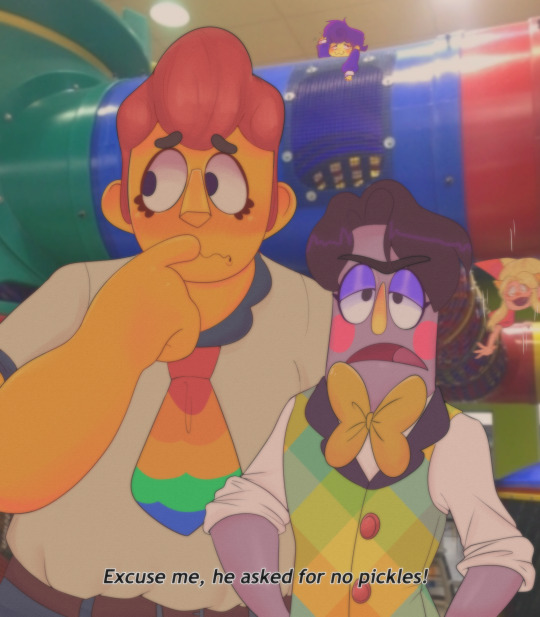
#welcome home#welcome home fanart#frank frankly#eddie dear#wally darling#julie joyful#yes julie is falling#but dont worry shes having a blast#I headcannon her to be very unhinged and wild so shes climbing all over the equipment#Frank promised to but her TWO happy meals#as long as she doesn't physically assault Grimmace or fight the Hamburglar#she says they know what theyve did#and she does not want the hamburglar to burgal her hams#I know I didn't spell that right#but I aint gonna be assed to look that up right now#Eddie doesn't mind the pickles#but Frank will be damned if he allows anybody to walk all over his husband#Its the principal of the thing! Frank would say
440 notes
·
View notes